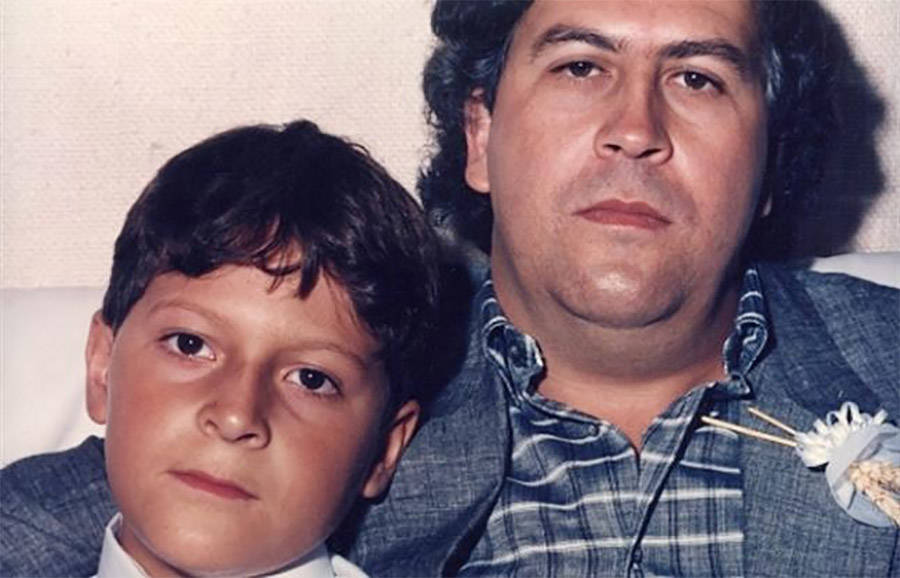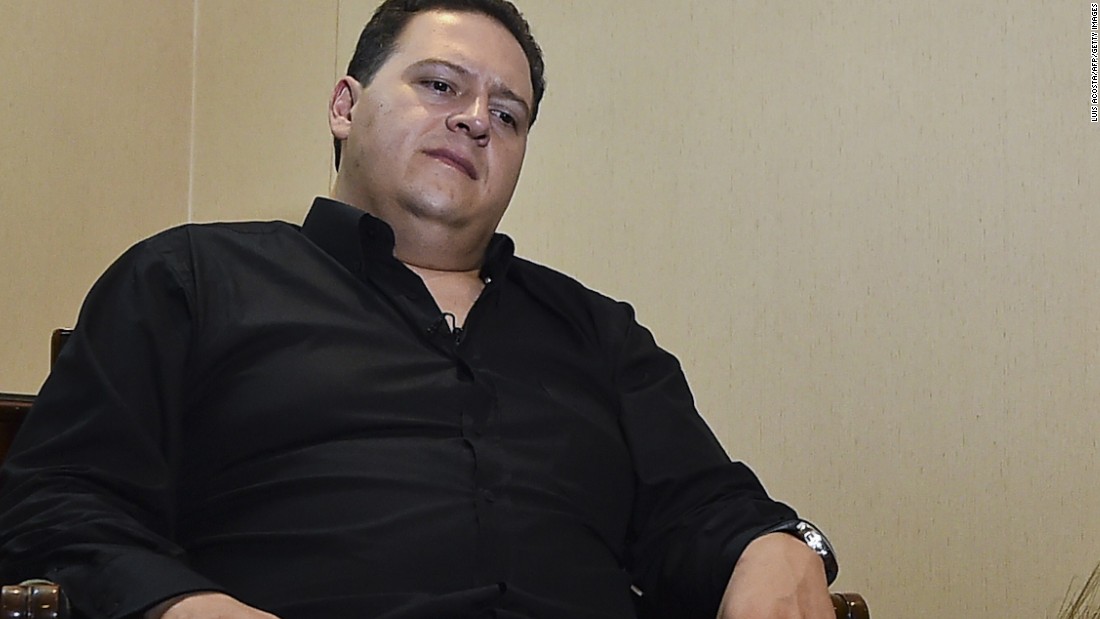Is it possible to escape the shadow of a notorious past and forge a new identity? Sebastin Marroqun, born Juan Pablo Escobar Henao, the son of the infamous drug lord Pablo Escobar, has dedicated his life to answering this very question.
Born in Medelln, Colombia, on February 24, 1977, Juan Pablo Escobar Henao, now known as Sebastin Marroqun, is a man who has lived a life unlike any other. His father, Pablo Escobar, was the leader of the Medelln Cartel, one of the most powerful and ruthless drug trafficking organizations in history. This association thrust Juan Pablo into a world of unimaginable wealth, luxury, and danger, a world where fear and tragedy were constant companions. Yet, despite the darkness that surrounded him, he has strived to create a different path for himself, seeking redemption and a life free from the legacy of his father's crimes.
| Category | Details |
|---|---|
| Full Name | Juan Pablo Escobar Henao (later Sebastin Marroqun) |
| Date of Birth | February 24, 1977 |
| Place of Birth | Medelln, Colombia |
| Parents | Pablo Escobar (father), Maria Victoria Henao (mother) |
| Siblings | Manuela Escobar (sister) |
| Education | Architecture and Industrial Design |
| Profession | Architect, Industrial Designer, Author, Lecturer, Peace Activist |
| Known For | Son of Pablo Escobar, Author of "Pablo Escobar: My Father," Peace Advocacy |
| Key Activities | Lecturing on peace and reconciliation, advocating for drug policy reform, writing books about his experiences, designing products |
| Notable Works | "Pablo Escobar: My Father" (book), "Sins of My Father" (documentary) |
| Web Link | Official Website |
The transition from Juan Pablo Escobar Henao to Sebastin Marroqun represents more than just a name change; it signifies a conscious effort to distance himself from the notoriety and stigma associated with his father's name. This new identity has allowed him to pursue a career in architecture and industrial design, providing a creative outlet and a means of rebuilding his life. He has also become a vocal advocate for peace and reconciliation, using his unique platform to share his experiences and promote healing, forgiveness, and the importance of human values. His work as a lecturer and author allows him to connect with audiences worldwide, sharing his powerful testimony and promoting dialogue about the devastating impact of violence and the possibility of positive change.
The death of Pablo Escobar in December 1993 marked a pivotal moment for Juan Pablo. At the age of 16, he was thrust into a new reality, one marked by loss, fear, and the constant threat of violence. Along with his mother and sister, he was forced to flee Colombia, seeking refuge in Mozambique and later, with tourist visas, in Argentina, where they eventually settled and became citizens. This exile was a physical manifestation of the emotional and psychological separation he sought from his father's legacy.
His story is one of survival, resilience, and the pursuit of a different path. He has dedicated himself to understanding the damage his father caused and striving to contribute to a better future. He has openly acknowledged the pain inflicted by his father's actions and has extended apologies to the victims, participating in dialogues and seeking to build bridges towards reconciliation. He's also spoken about his desire to demythify the image of his father and giving voice to the victims. In the 2009 documentary "Sins of My Father," he took the brave step of contacting victims of his father's crimes and asking for forgiveness, a move that underscored his commitment to healing and atonement.
The narrative surrounding Pablo Escobar has been a subject of extensive scrutiny, particularly due to the popularity of the Netflix series that brought the story to global audience, however, in this series and in many other portrayals, Juan Pablo has spoken about the issue with the portrayal of his father. He has been critical of the way the media and popular culture have often sensationalized his father's life, frequently highlighting the violence and criminal aspects while neglecting the full complexity of the human cost. "My father was no hero" is what one of the sources has written about the complexity of his image, that highlights his complexity. This perspective is crucial for understanding the full picture of his story.
Sebastin Marroqun's journey is a testament to the human capacity for transformation. His commitment to creating a positive impact, and his work as a peace activist and advocate for drug policy reform underscores the possibility of choosing a path of empathy and reconciliation, even when confronted with the darkest aspects of human nature. His story serves as a reminder that while the past can never be erased, it does not have to dictate the future. He has chosen to confront his past, to learn from it, and to dedicate his life to making the world a better place.
His younger sister, Manuela Escobar, born in 1984, has chosen a more private life, largely remaining out of the public spotlight. Both siblings, however, share a unique perspective on the complex and often contradictory figure of their father. They grew up within the confines of his opulent lifestyle, surrounded by both immense privilege and the ever-present threat of violence. They are both deeply marked by the legacy of their father, a legacy that has followed them even as they tried to create their own identities, away from the shadow of a criminal leader.
Marroqun's efforts to create a different identity led him to write two books about his father: "My Father" and "Pablo Escobar: My Father," where he relates his memories and seeks to demystify the image of his father, as well as give voice to the victims. The details provided by him in his books contribute to a deep understanding of the complexity of the man that history knows as a narco-terrorist, and it can never be simplified, especially when the story is told by a member of the family.
Marroqun has also shared his story in various forms, including visiting the prison el cereso in Ciudad Juarez, Mexico, where he had a talk with the prisoners. His willingness to engage with individuals from all walks of life, including those who may have been affected by his father's actions, emphasizes his commitment to dialogue and reconciliation.
The story of Juan Pablo Escobar Henao, now Sebastin Marroqun, is a powerful example of how an individual can transcend a challenging past and transform it into a force for good. His determination to pursue a different life, his efforts to understand the impact of his father's actions, and his commitment to peace and reconciliation offers hope and inspiration. His experience underscores the complex interplay of past and present, the constant negotiation between the weight of history and the possibilities of the future.
The family histories are stories of silence, and only the passage of time gives space to the truth. The versions of the story that have always been told from the outside, only capturing half the truth, and never from the intimacy of his own home. His story serves as a reminder that the drug problem is not going to be resolved with machine guns, but with other approaches. His life is a testament to the power of human resilience and the potential for healing, even in the face of immense adversity, and for that, it's important to explore his story to give more context to the life of the family of a criminal.
In a world often defined by darkness and conflict, Sebastin Marroqun's life offers a glimmer of hope, a testament to the possibility of redemption, and the enduring power of the human spirit to heal, forgive, and strive for a better future. The path from Juan Pablo Escobar Henao to Sebastin Marroqun represents a lifelong journey of transformation, of facing the past and building a legacy of peace and reconciliation, a legacy that will continue to inspire for years to come.


